I couldn't recall any in either Modern or Literary Chinese. Consulting a bunch of authoritative dictionaries confirms it (see the entry screenshot in the next section).
I really recommend against those quoted dictionaries (except for the cuhk one). On the mainland, 《新华字典》is the dictionary for primary schools and one of the two dictionaries for middle and high schools with regard to Modern Chinese. It has an official bilingual version, in which both the explanations and examples are presented with English translations. The examples also come with pinyin. A paper copy is cheap, and a free text mdx version is easy to get by (but in this case you need to pay attention to the copyright issues in your regions). The entry for 所 is as follows:
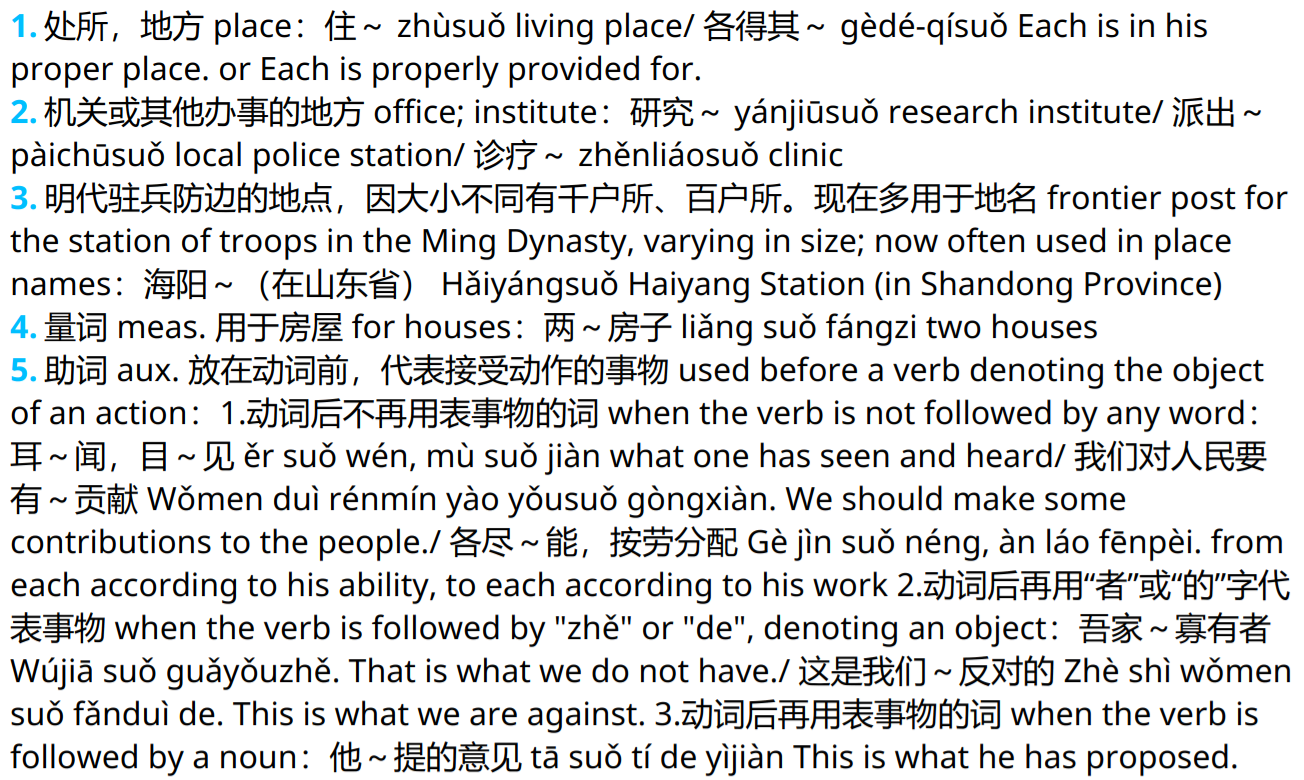

The character 所 is created to mean 'sound of wood chopping'. This original usage was very rarely used; attestations are mainly found in《诗经》.
所 was loaned to denote the noun 'place' (corresponding to meanings 1,2,3 in 《新华词典》), which developed into a classifier (4) and a pronoun (5), and the pronoun further grammaticalized to a verb prefix (6). Since 《新华词典》 is at the entry level, it is ok to treat meanings 5 as auxiliaries, but it is actually a pronoun (see 王力 《汉语语法史》). The above are actively used in both Modern and Literary Chinese.
If we extend to Literary Chinese, we can find some other less common meanings, none of which are related to 'actually'.
王力《古漢語字典》

《辭源》
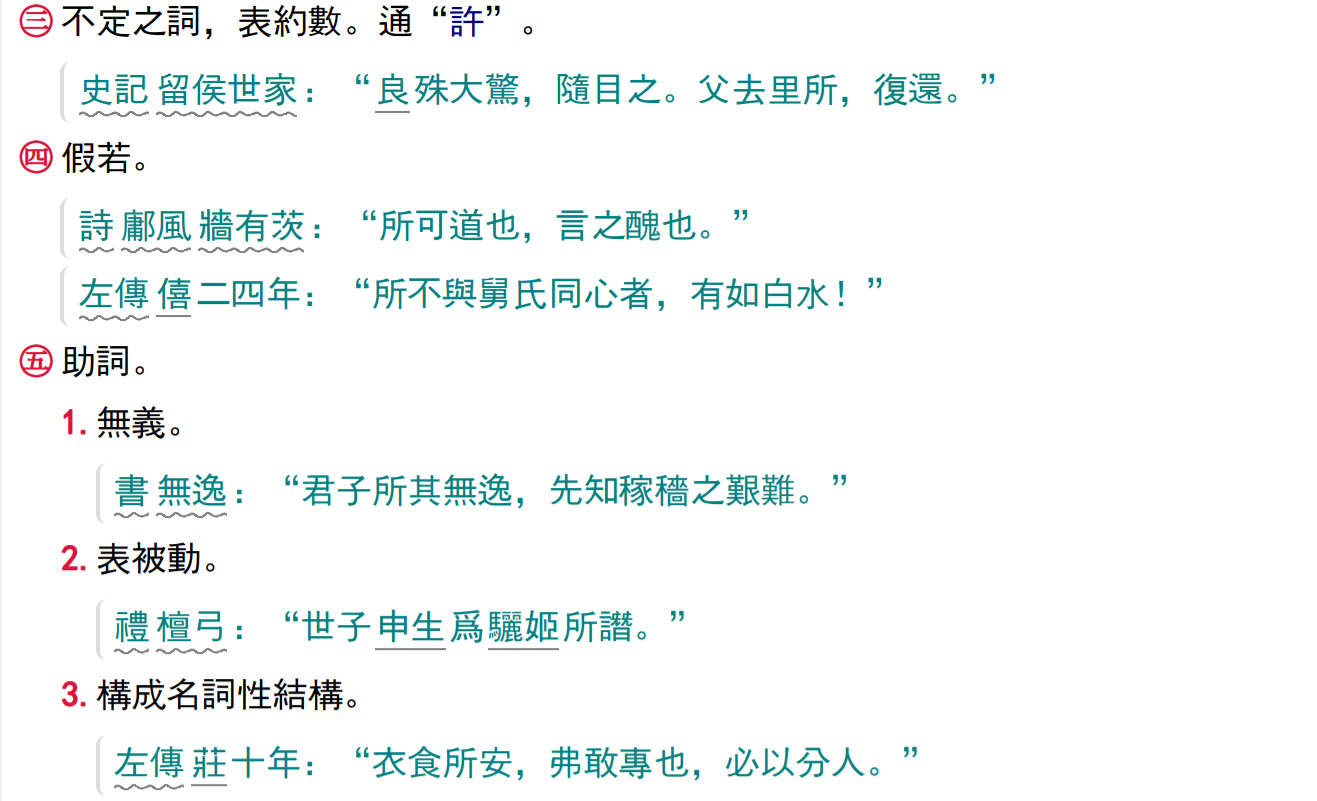
《漢語大詞典》
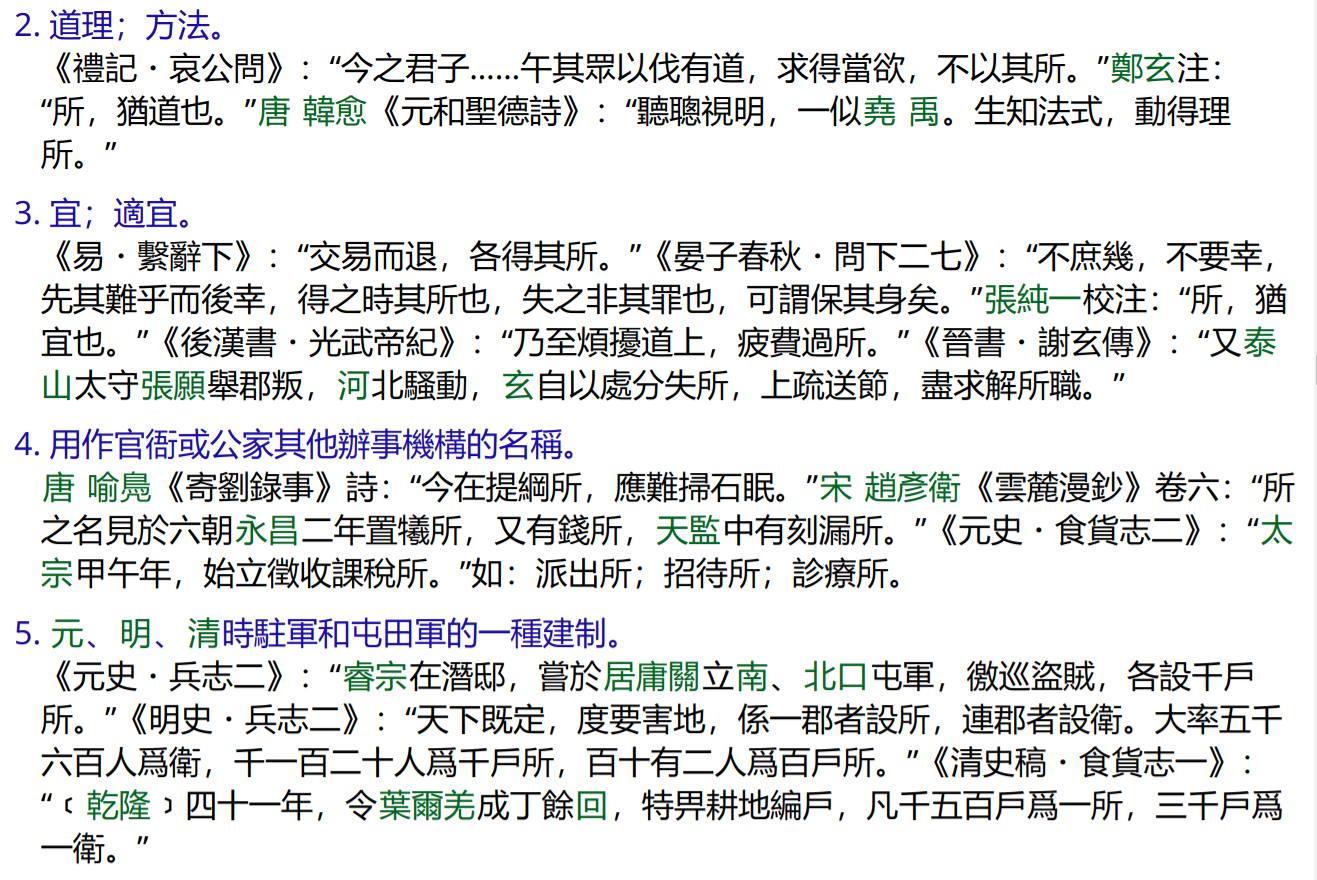
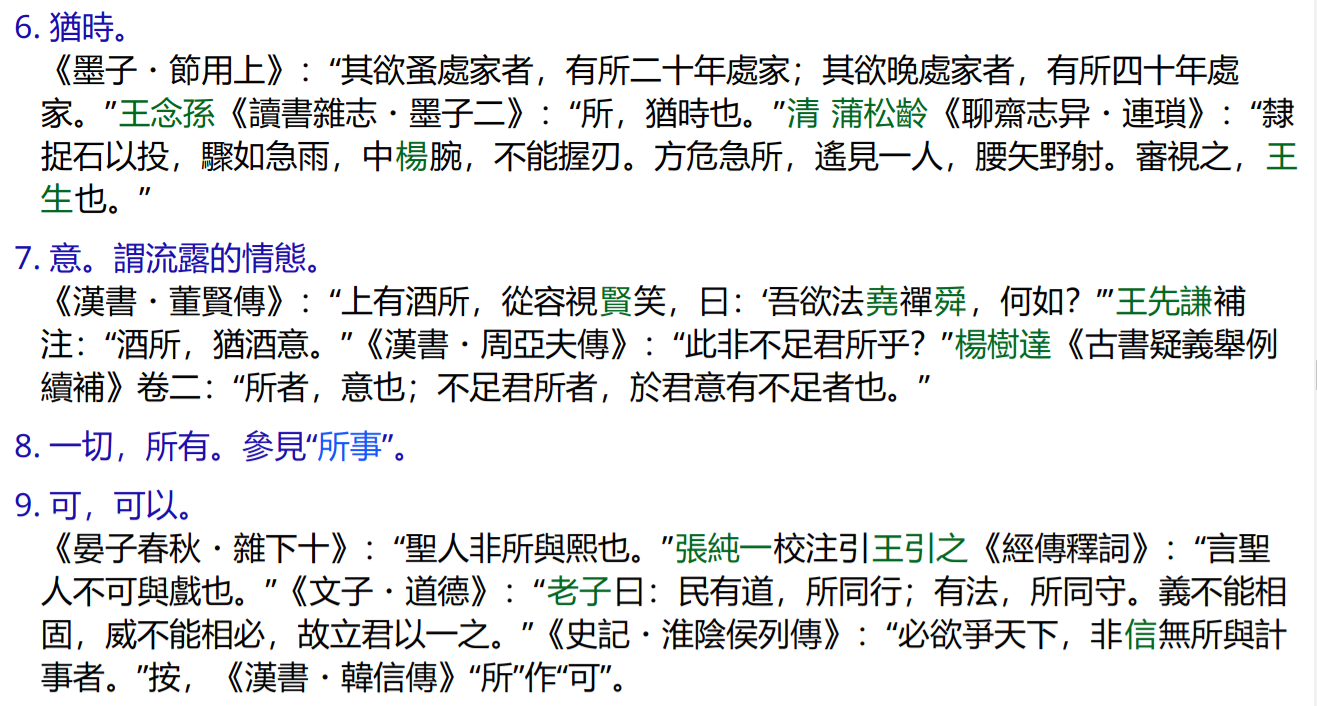
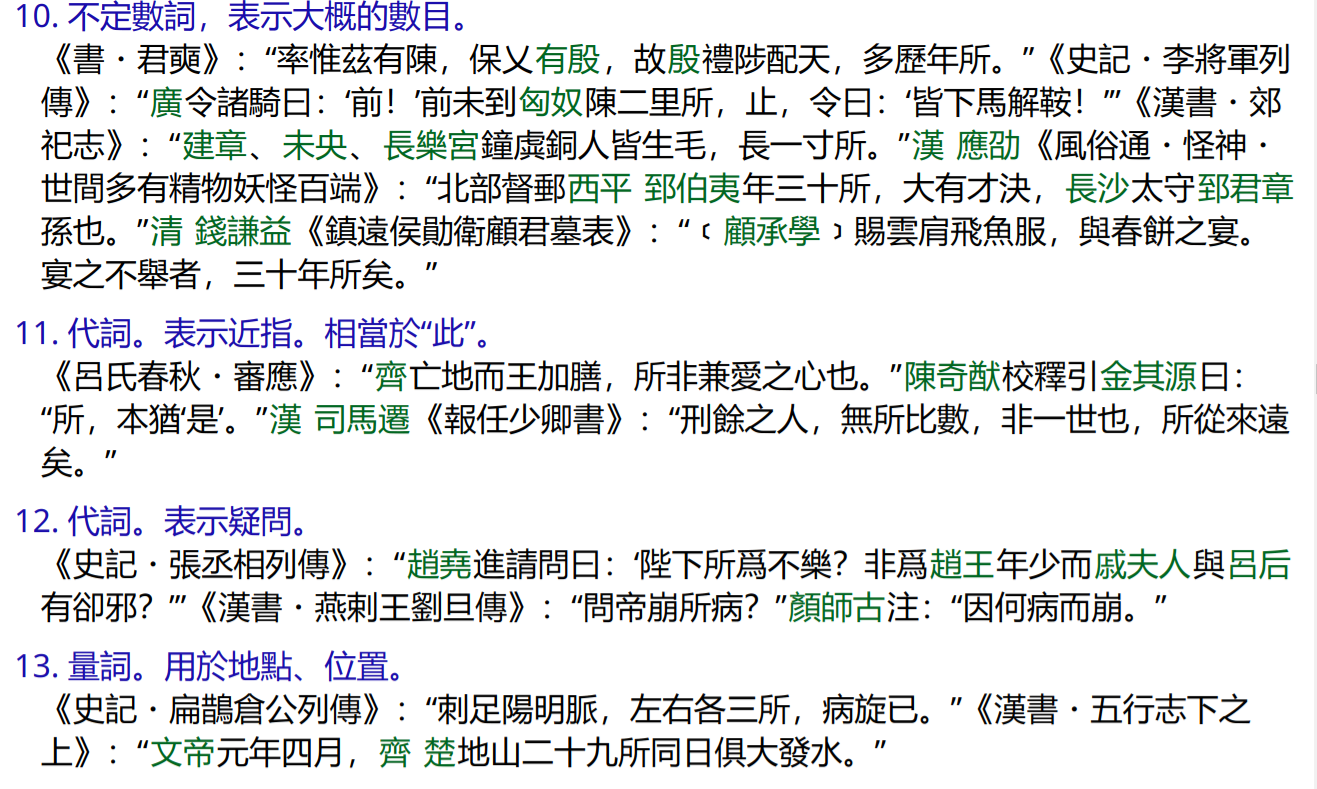
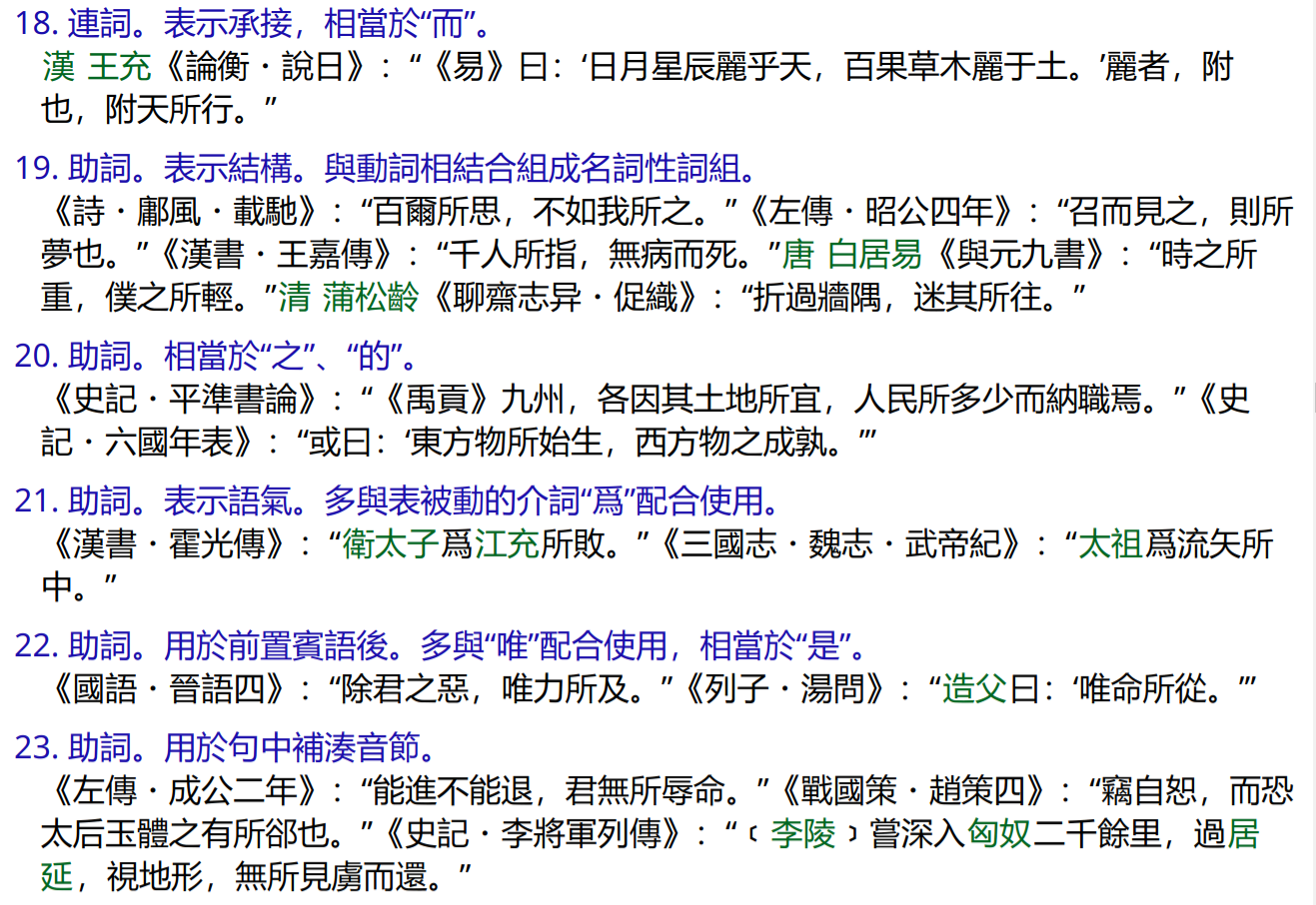
《教育部重編國語辭典》(https://dict.revised.moe.edu.tw/dictView.jsp?ID=10158&q=1&word=%E6%89%80)
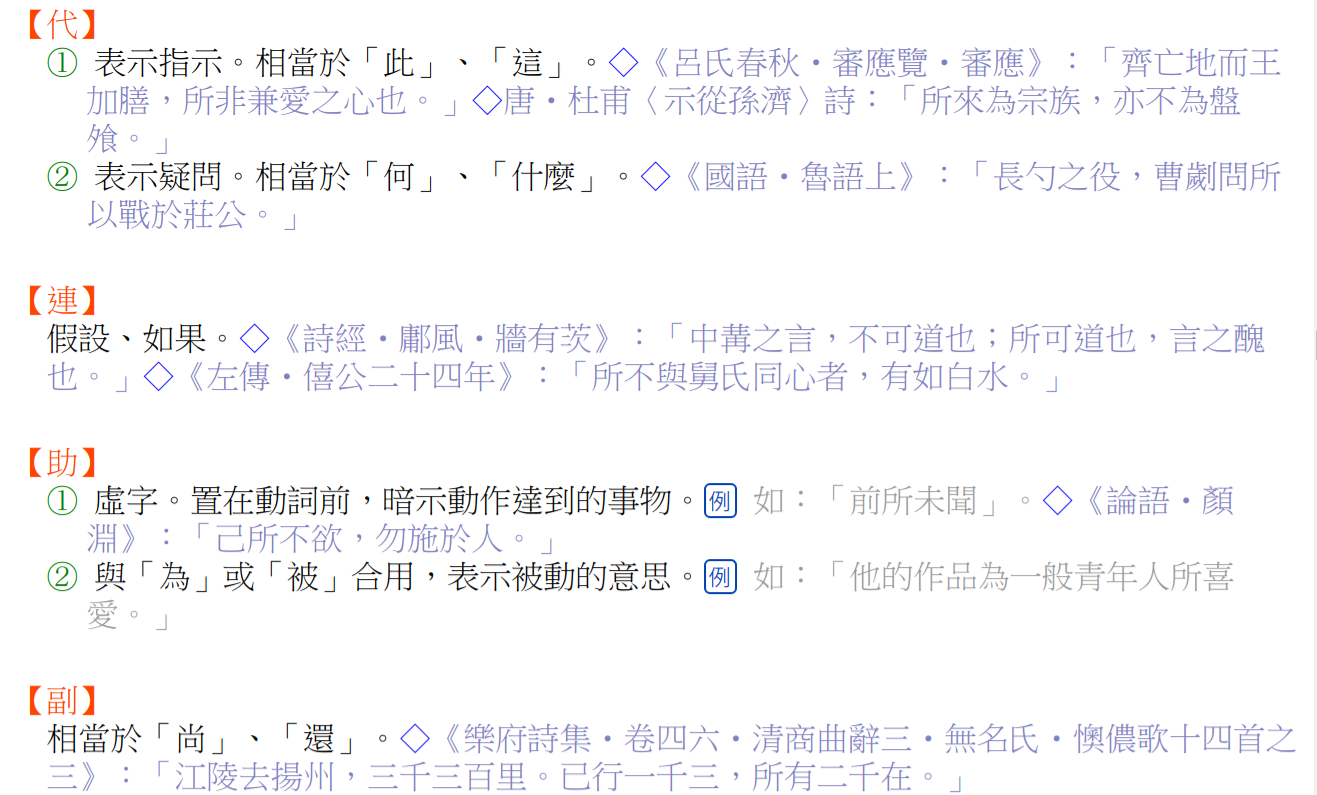
REQUESTED BY PdotWang
王力 discussed 所 in Chapter 5 指示代词. Here I post the screenshots of relevant pages.
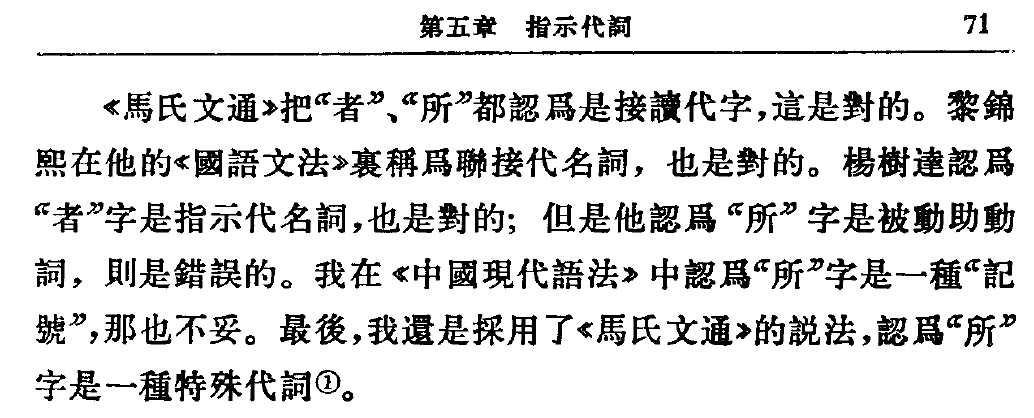

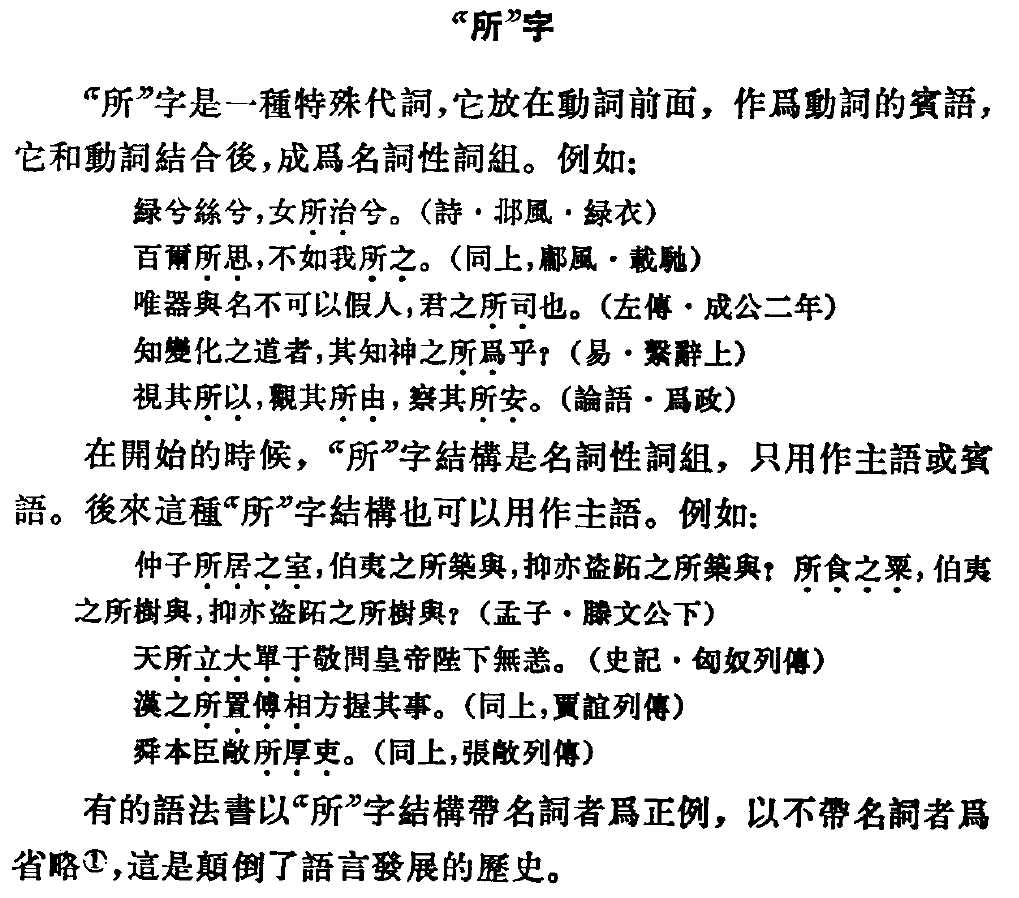
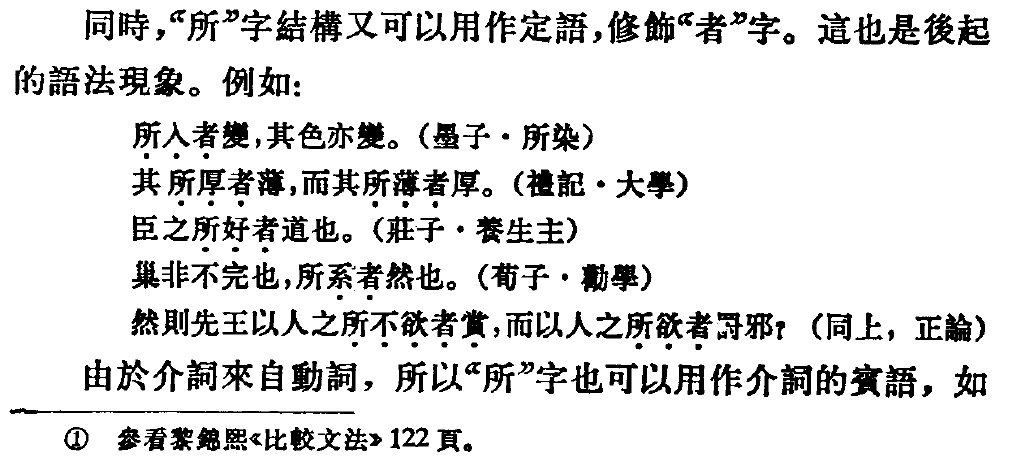
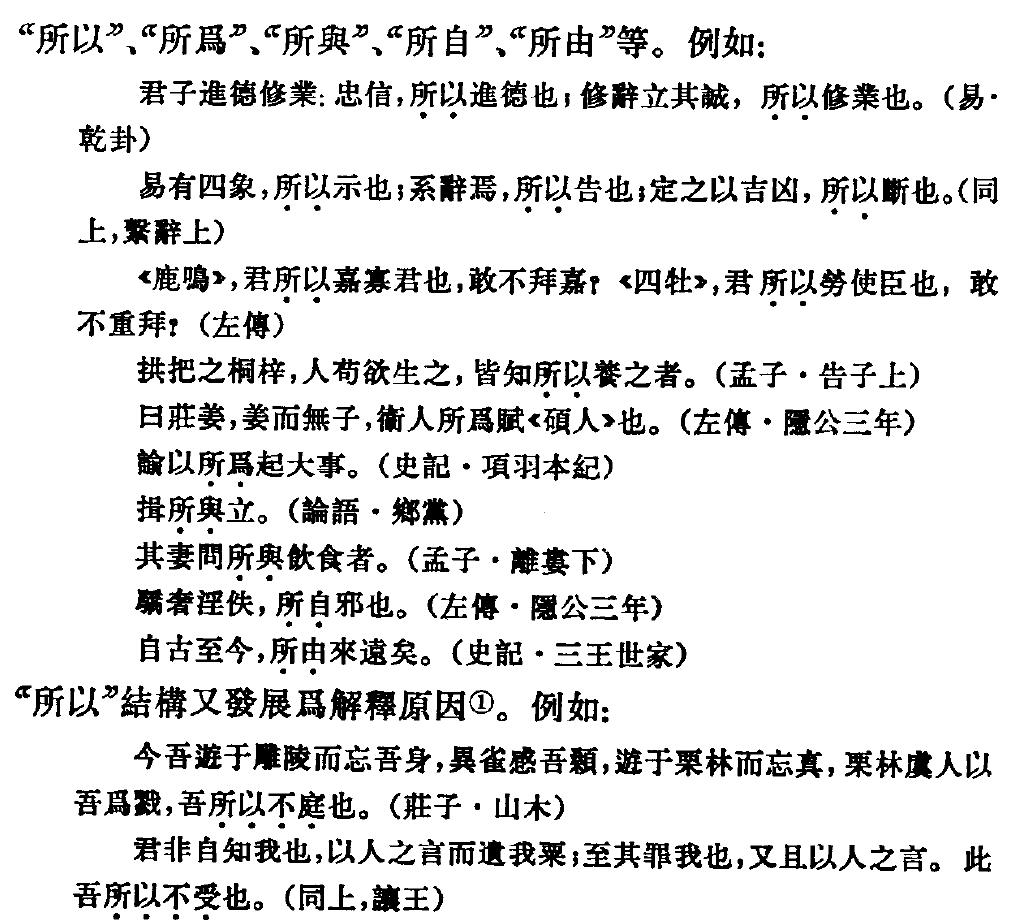
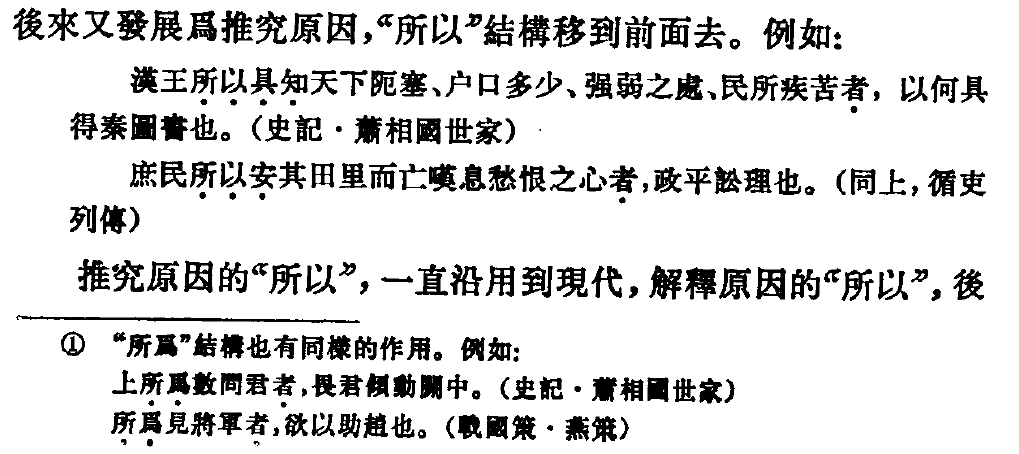
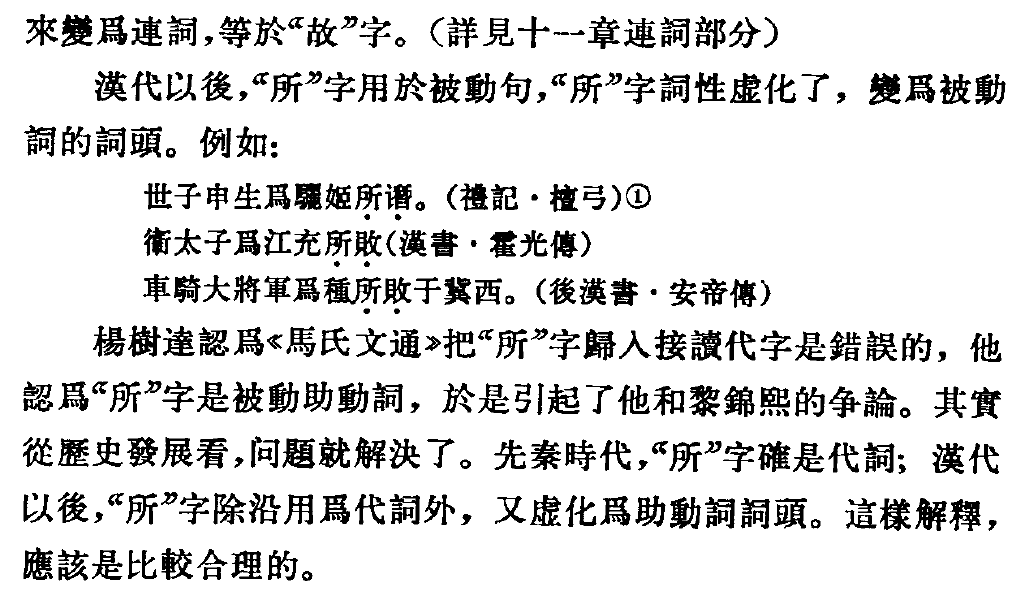
RESPONSE TO @faure
I checked wenlin, it's good to offer some translation of 说文. The etymology and glyph composition are concise and useful. But I am only able to consult one word without login and thus cannot assess its overall accuracy. I opened hanziyuan.net and recognize that guy. Then I watched one video from him about 帽. He actually writes 冒 wrong. The upper part must be wider than the lower. And his claim that 𨸏 is wall is not attested. Again, I don't know enough about him to assess the overall accuracy.
Check https://mdict.org/post/0005/ for 新华字典双语版. You also need a software (free or open-source ones available for all platforms) for the mdx format.















